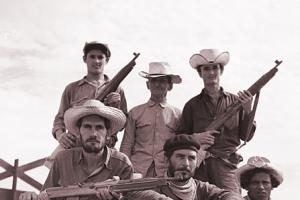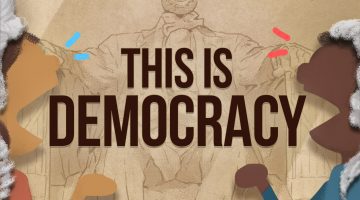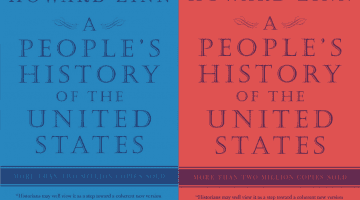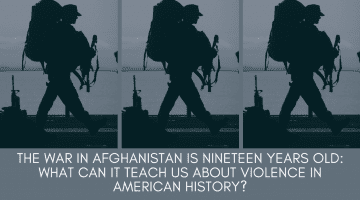Latin America’s Cold War by Hal Brands (2010)

In this new book, covering the entire period of the Cold War in Latin America, Hal Brands restores agency and initiative to Latin American actors, in the process demolishing many of the platitudes that have governed much of the U.S.foreign policy literature.image Based on prodigious research in a dizzying array of U.S., Latin American, and even East German archives, Brands’s work advances a trenchant interpretation that cannot be ignored.
The Wars of Oppenheimer

It’s a three-hour, ultra-big-screen, deeply-researched box office mega-hit about… J. Robert Oppenheimer, project manager. Leslie Groves, the manager’s manager. Kitty Oppenheimer, the manager’s kids’ manager. Lewis Strauss, the wanna-be manager. Harry Truman, the buck-stops-here manager. James Byrnes, President Truman’s manager. The scientists of the Manhattan Project were thoroughly unmanageable. The bomb? It was everybody’s fault, […]
This Is Democracy: Iraq War: Lessons and Legacies

Guest Dr. Melvyn P. Leffler is the Edward Stettinius Professor of History Emeritus at the University of Virginia. He is one of the leading historians of U.S. foreign policy. Professor Leffler is the author of numerous prize-winning books, including: A Preponderance of Power: National Security, The Truman Administration, and the Cold War; For the Soul […]
Roundtable Review of Jeremi Suri’s Civil War by Other Means

From the editors: Historical scholarship is underpinned by rigorous investigation of sources and archives. But historians can also leverage their knowledge of the past to think critically about the present. Jeremi Suri, the Mack Brown Distinguished Chair for Leadership in Global Affairs at the University of Texas at Austin, exemplifies this practice. In October, Dr. […]
Tracking Kurosawa Through Postwar Japan (and How I Turned a Side Hustle Into a Book)
Five Books to Help Make Sense of the War in Ukraine

On 24 February, 2022, Russia shocked the world by dramatically escalating its longstanding war with Ukraine. Since then, numerous experts—including students, faculty, and alumni of the University of Texas at Austin—have performed a vital public service by commenting directly on the Ukraine crisis, unpacking its complicated origins and exposing its devastating impact. Inspired by their […]
Why Study the Ugliest Moments of American History? Reflections on Teaching Howard Zinn’s A People’s History of the United States

History professors often look for ways to use the past to inform present debates. With long-past events, that sometimes requires some acrobatic leaps over centuries or millennia, but in my own courses on violence in American history, the connections are often pretty obvious. Every day, a stream of new or ongoing violent events invite historical […]
The War in Afghanistan is Nineteen Years Old: What Can it Teach us about Violence in American History?

From the Editors: This article is accompanied by a comment from Jeremi Suri, the Mack Brown Distinguished Chair for Leadership in Global Affairs at the University of Texas at Austin. Such comments are a new feature for Not Even Past designed to provide different ways to engage with important new work. This week marks the […]
Indelibly Inked: Bodies, Tattoos, and Violence during Guatemala’s Civil War

If we understand Alvarez’s decision to tattoo as a direct response to the soldiers’ threats, his story elucidates the limits of state power. Where death squads in Guatemala repeatedly executed civilians and deprived their families of closure, Alvarez’s tattoo might have thwarted such efforts had he died. If the army killed him, or Felipe, or Alberto, their markings might have rendered them more recognizable to their families regardless of the military's brutality. Their mothers and fathers could then recite the Lord’s Prayer and give them a proper burial. In this sense, Alvarez’s tattoo embodies rebellion against the Guatemalan government’s authority to deprive families of the ability to grieve. His indelible ink, even in death, may have prevented the state from terrorizing his people and denying them this right.
